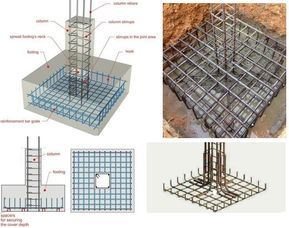When embarking on a construction or development project, the importance of a thorough site investigation cannot be overstated. While it may seem like an unnecessary upfront cost, investing in detailed site investigations can save you significant amounts of money in the long run. Here’s how:

1. Identifying Potential Risks Early
A detailed site investigation helps uncover hidden risks and challenges that might not be apparent at first glance. This includes soil conditions, groundwater levels, contamination, and geological features detailed site investigation. By identifying these issues early, you can avoid costly surprises down the line. For example, discovering unstable soil after construction has started can lead to expensive redesigns and delays.
2. Optimizing Design and Construction Plans
Having accurate and comprehensive data about the site allows engineers and architects to optimize their designs. This can lead to more efficient use of materials and labor, reducing overall costs. By tailoring designs to the specific conditions of the site, you can also avoid over-engineering, which can inflate budgets unnecessarily.
3. Preventing Environmental Compliance Issues
Environmental regulations can be complex and strict. A detailed site investigation can help ensure compliance with local, state, and federal regulations regarding land use, waste management, and environmental protection. By addressing potential compliance issues before they become problems, you can avoid fines, legal fees, and costly remediation efforts.
4. Enhancing Project Planning and Scheduling
With a thorough understanding of the site, project managers can develop more accurate timelines and budgets. Knowing the specifics of the site conditions helps in scheduling construction activities effectively, reducing downtime and labor costs. This foresight can streamline operations, allowing projects to be completed on time and within budget.
5. Facilitating Better Communication with Stakeholders
Detailed site investigations provide valuable information that can be shared with stakeholders, including investors, local authorities, and community members. This transparency builds trust and can ease concerns, making it easier to gain approvals and support for your project. Clear communication based on factual data can help prevent disputes and delays that can drive up costs.
6. Long-Term Asset Value
Investing in a detailed site investigation not only protects your immediate financial interests but also enhances the long-term value of your asset. A well-researched and thoughtfully developed site is more likely to attract buyers or tenants, resulting in better returns on your investment. Additionally, properties with known site conditions tend to have lower risk profiles, which can be appealing to potential investors.
7. Reducing Liability and Insurance Costs
Inadequate site investigations can lead to accidents or failures, which can have serious legal and financial repercussions. By conducting a thorough investigation, you minimize the risk of such incidents, potentially lowering your liability exposure and insurance premiums. Insurers often view proactive risk management favorably, leading to cost savings on your policies.
Conclusion
In summary, while detailed site investigations may seem like an added expense, they are a crucial investment that can lead to significant savings and improved project outcomes. By identifying risks early, optimizing designs, ensuring compliance, and enhancing communication, these investigations set the stage for successful, cost-effective projects. In the competitive world of construction and development, a little foresight can go a long way—making thorough site investigations not just wise, but essential.